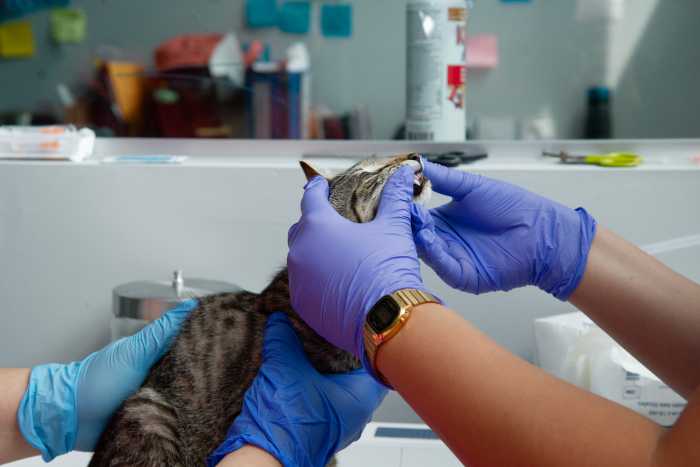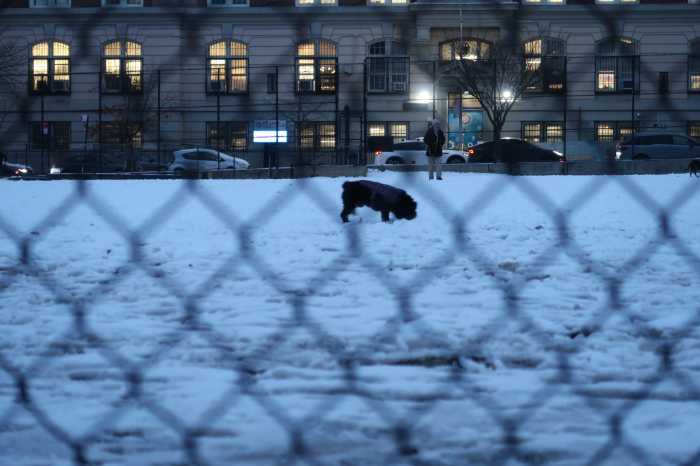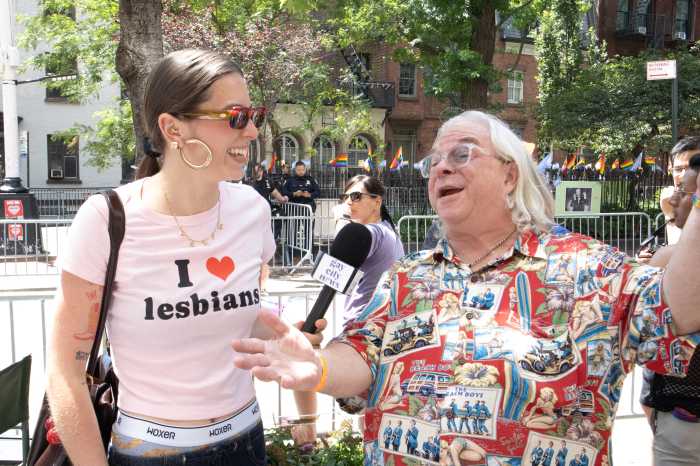Some Brooklynites are refusing to vaccinate their pets against virulent and potentially deadly illnesses — some of which could spread to humans — thanks to a growing movement against the life-saving inoculations, according to borough veterinarians.
“We do see a higher number of clients who don’t want to vaccinate their animals,” said Dr. Amy Ford of the Veterinarian Wellness Center of Boerum Hill. “This may be stemming from the anti-vaccine movement, which people are applying to their pets.”
The increased skepticism towards inoculating pets is likely the result of a national movement that claims vaccines can cause autism in children, according to the doctor, who said she has seen an increase in clients unwilling to have their dogs vaccinated in recent years — despite experts’ findings that show no link between the inoculations and the developmental disorder.
Core vaccines for canines include distemper, hepatitis, and rabies, the only shot required to get a pet license in New York state, without which, owners can get fined.
A squirrel’s recent biting spree in Prospect Park sparked fears over the deadly illness last month, and all identified victims were told by the city to get the rabies vaccine although the animal was neither found nor diagnosed with it.
Hip youngsters who promote a more holistic lifestyle for their pets tend to be the most vocal anti-vaxxers, Ford said, but rarely have a particular reason for leaving Fido open to infection.
“It’s actually much more common in the hipster-y areas,” she said. “I really don’t know what the reasoning is, they just feel that injecting chemicals into their pet is going to cause problems.”
Not all residents of Kings County’s “hipster-y areas” refuse to inoculate their pets, however, according to Greenpoint dog owner Larissa Moon, spotted on Wednesday walking her pooch in Prospect Park.
“It’s a pretty good idea to vaccinate both your dogs and your kids,” she said, while wearing a leaf for a hat.
A Clinton Hill–based veterinarian said she has heard clients suggest the inoculations could give their pups autism, however, echoing the argument of those who oppose vaccinating kids. But even if pooches were susceptible to the condition, their owners probably wouldn’t notice, according to the doctor.
“I had a client concerned about an autistic child who didn’t want to vaccinate the dog for the same reason,” said Dr. Stephanie Liff of Clinton Hill’s Pure Paws Veterinary Care. “We’ve never diagnosed autism in a dog. I don’t think you could.”
And some anti-vaxxers are not content with just withholding shots from their pets, according to a Park Slope dog owner who has run into skeptics that have encouraged him to forgo inoculations.
“I’ve bumped into a couple people who told me ‘Don’t vaccinate your dog,’ ” said Adam Weller. “I’m like, ‘Okay, have a nice day!’ ”
But another former pup owner said that while she has vaccinated pets in the past, recent concerns over the injections’ side effects have moved her to doubt their necessity.
“I’ve heard over the past couple of years that there can be issues with [vaccinations],” said Park Slope resident Jeannette D’Mico, whose two pooches died last year. “I will get another dog eventually, and will look into not doing that blindly.”
There was a recent uptick in canine vaccinations after an outbreak of the bacterial disease Leptospirosis, which infected several people in the Bronx earlier this year and is lethal to dogs, according to Liff, who said it’s not unusual for trends in human medicine to trickle down to animal health care.
“Most trends in veterinary medicine are extensions of human medicine, so I think the anti-vaccination movement extending into veterinary medicine is natural,” she said.
And while there are similarities in how diseases are treated in humans and animals, there are major differences in how they are contracted, including diet, that make pets even more susceptible to illnesses that vaccines prevent.
“It’s a little different,” Liff said. “My patients eat dirt. They eat poop.”
The vet encourages her patients to get their shots renewed every three years and said their benefits far outweigh their risk, an allergic reaction that occurs in less than .04 percent of pooches.
“I see more diseases that could be prevented by vaccination than I see reasons not to do it,” Liff said.


























